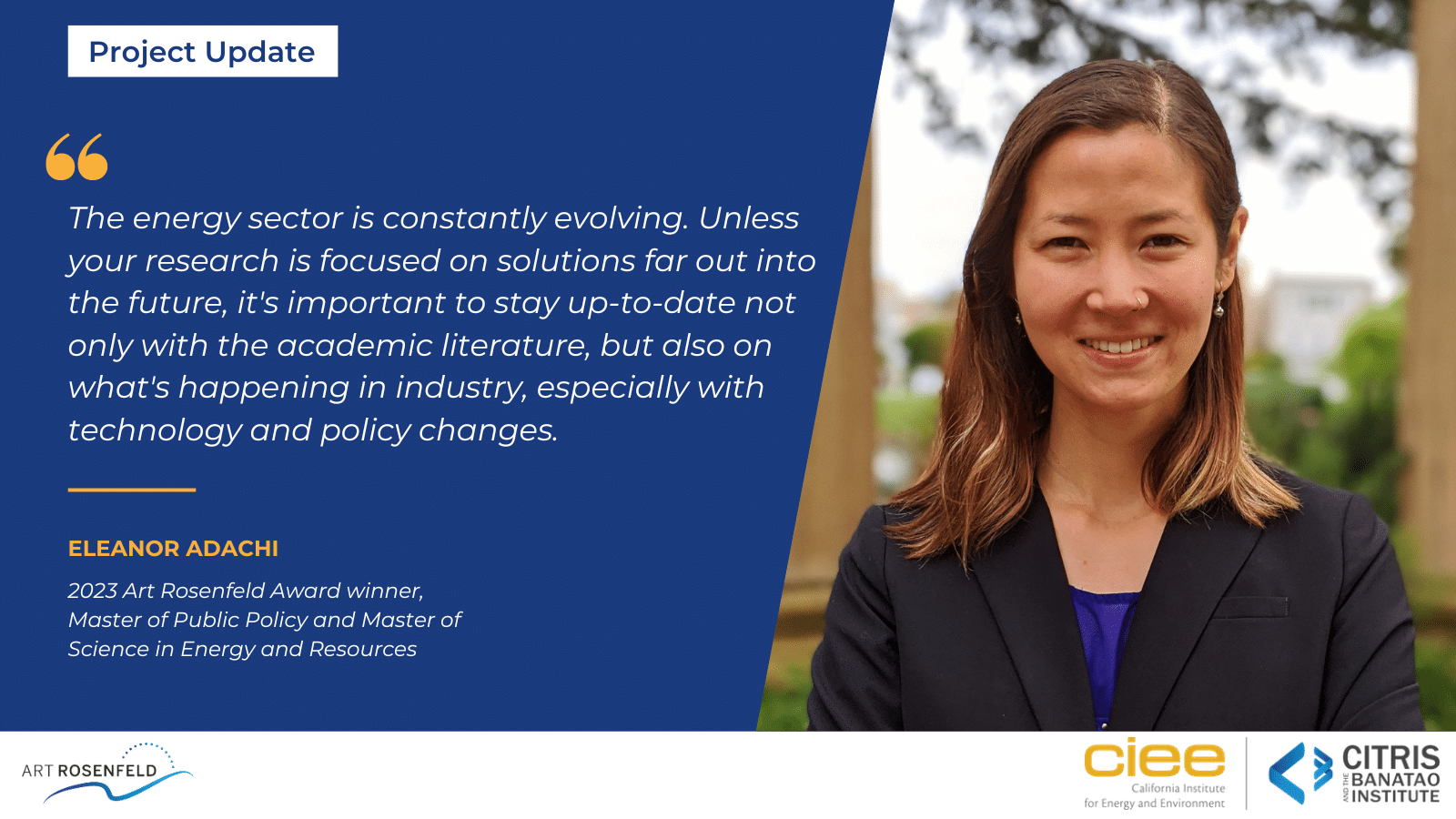Eleanor Adachi, a dual-degree Master’s student in Public Policy and Energy and Resources at UC Berkeley, received the 2023 Art Rosenfeld Award, a CIEE-managed fellowship awarded to graduate students committed to pursuing research on energy efficiency. She shares how the award has helped further her research on dynamic electricity pricing and beyond.
As a Senior Energy Analyst at the California Public Utilities Commission (CPUC), Adachi’s research goals focus on reducing and reshaping electricity demand to maintain affordable rates and incentivize customers to electrify their vehicles and buildings. Through her work, Adachi hopes to provide valuable insights on creating energy policies that promote a more resource-efficient society while making clean, reliable electricity accessible and affordable for all.
Recently, Adachi has been focused on two projects that aim to make demand more flexible through incentive mechanisms such as dynamic electricity pricing. The first project is a collaboration between Adachi and two Electrical Engineering PhD students at UC Berkeley, Ruth Kravis and Eli Brock, that explores how electricity prices are determined in grids shifting toward zero marginal cost generation. The team recently submitted a paper on their work, which was accepted to the upcoming Power and Energy Conference at Illinois (PECI) in April and will be published in the conference proceedings.
The second project aims to quantify the trade-offs between distribution system upgrades and capacity procurement in optimizing electric vehicle (EV) charging load. “The Art Rosenfeld Award has enabled me to dramatically expand my research,” said Adachi. “With the support of the Art Rosenfeld Award, I will be focusing my attention on the second project for the remainder of 2024, which builds off of previous work by other UC Berkeley researchers.”
Additionally, Adachi is involved in a California Climate Action Initiative-funded research project, one aspect of which focuses on understanding the distribution grid infrastructure investments needed to support the deployment of distributed energy resources (DERs) in disadvantaged communities. Though the project is still at an early stage, Adachi hopes it will create opportunities to integrate social justice and equity more deeply into her distribution grid-related research.
“The energy sector is constantly evolving,” Adachi said. “Unless your research is focused on solutions far out into the future, it’s important to stay up-to-date not only with the academic literature, but also on what’s happening in industry, especially with technology and policy changes.” She also offers words of advice to graduate students interested in energy-related research: “Your advisor can be a valuable resource. I also listen to a lot of podcasts, read energy-related media like Canary Media and Utility Dive, and attend energy-themed events both on and off campus.”


